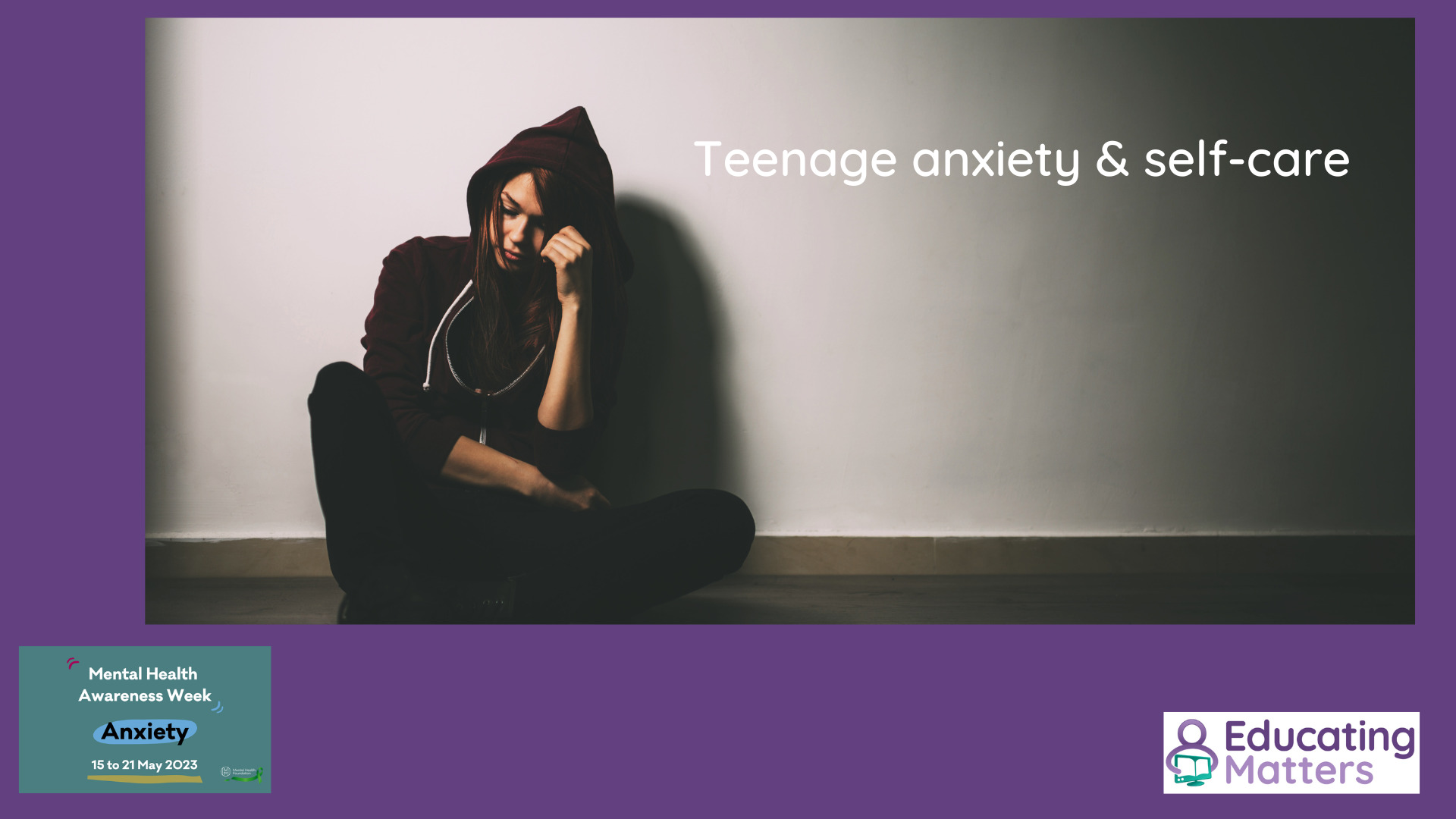Anxiety is at unprecedented levels on an average day for our teenagers and young adults. Some studies show as much as a 30% rise since 2015. With all of the pressures of adolescence and a still-developing brain coupled with the new pressures of the post-covid world, it is imperative that we become more proactive rather than reactive to alleviate anxiety in the next generation.
‘Self-care’ is often the prescription given to adults who struggle with anxiety. It stands to reason then that if we teach these skills to our teenagers and young people early, they will be able to avoid some of the transmitters that lead to stress and anxiety overload. But what can that look like for our teens? Here are a few ways to frame self-care for the teenage body and mind.
Learning to recognise and remove toxic people from their lives
Due to a very active limbic system, teenagers feel a strong need to fit in and gain acceptance from their peers. It is extremely important to help them recognise the signs of toxic people that they need to remove from the equation. Teach adolescents that people who make us feel bad about ourselves or go against our value systems do not get a vote in our worth.
Setting personal and social boundaries around time and emotional input
Many of us are guilty of poor time and boundary management as adults. This is due to not learning this skill as teenagers. If we focus on why this is important, teens can begin to manage the autonomy they are gaining over their time. This will require practice. Success will come with having them create their own plan and then looking together to see if it worked the way they wanted it to or if they need to adjust. They have more buy-in if it comes from them.
Moving their bodies for mental health, not just physical health
In our society, moving the body for exercise is often looked at as a way to make the body look good. Little is shared about the benefits to our mental and emotional health. Help our teens understand the build up of stress hormones in our body and how chemicals like endorphins can help remove the waste left from stressful events.
Acknowledging where they have power and control
As parents and carers, we see the incremental control that adolescents acquire as they get older. Point out to them areas where they have control This includes things like: how we treat ourselves and others, what language they use in texts with friends, what options they choose to study, how they respond to tricky social situations. We simply need to remind them that with great power, comes great responsibility. So, with the control comes choice and with the choice comes consequence. They are responsible for all 3 elements, not just the fun ones.
Embracing the concepts of body ownership, consent and healthy relationships
Feelings are never felt as strongly as when we are teenagers. Romantic relationships are intense and important. They set the tone for relationships as our teens become adults. Make sure they know how to say and hear no from a partner and also how to hear and say yes. This is not just about their physical relationship. No and Yes and consent also relate to the way they are spoken to, the activities they choose to participate in and the level of involvement in each other’s lives. Teach all of our teens to see consent as a part of respecting and loving their partners as well as a way to BE respected and loved.
As parents and carers, it can be difficult as control over our children turns more into influence. However, the power of our influence in this area cannot be overstated. If your teen needs to practice more self-care, choose one area to focus on and speak little and often about how proactive self-care is the best way to avoid the traps that lead to a need for reactive intervention.

